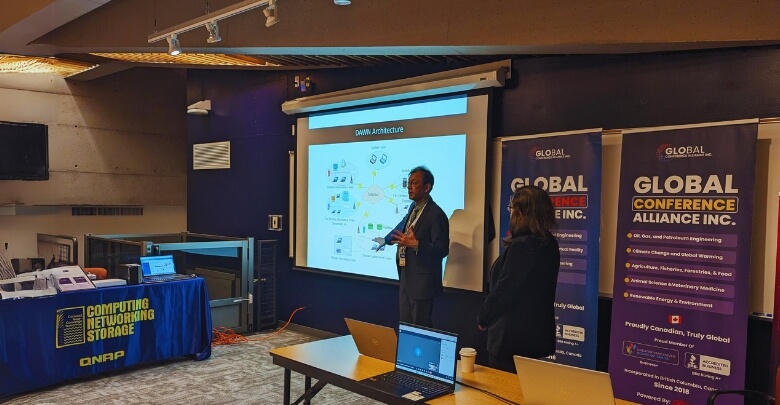Having a clear understanding of a “keynote speaker” and a “motivational speaker” is crucial when planning an event. The problem arises when these terms are used interchangeably, leading to confusion about their roles. The keyword “keynote speaker vs. motivational speaker” elucidates this distinction.
While a keynote speaker sets a specific tone or theme for an event, often providing insights or overarching messages, a motivational speaker usually tells captivating stories of overcoming adversity. Such tales can evoke strong audience reactions, but they don’t typically shape the event’s direction or theme.
Knowing the difference ensures you get the right speaker for your desired outcome and audience engagement. Addressing this gap aids in better event planning and sets the stage for success.
Who are the Keynote Speakers?
At conferences and events, keynote speakers play an important role. Their impact on an audience can be profound. Keynote speakers are often distinguished professionals chosen for their expertise in a specific field or domain.
They’re entrusted with setting the overall tone or theme of an event, ensuring their message resonates with the audience’s expectations and interests. Unlike other speakers, they don’t just share information; they craft narratives that blend insights, research, and experience to captivate attendees.

Regarding their background, these speakers can come from diverse sectors like business, academia, or even entertainment. For example, at a conference focused on business professionals, a keynote speaker qualified in the business sector will be invited to share insights, strategies, and experiences that resonate with the audience and provide valuable takeaways for attendees.
Their primary goal is to provide value, whether that’s by sharing new research findings, industry trends, or personal anecdotes that align with the event’s purpose. They often employ a mix of stories, data, and forward-thinking perspectives to spark conversations and inspire change.
While some might confuse them with motivational or inspirational speakers, the differentiation is clear. Motivational speakers primarily focus on evoking strong emotional responses, while keynote speakers emphasize content and context, aligning their speech with the overarching goals of the event. Selecting the right keynote speaker can be a game-changer, turning an ordinary conference into a memorable experience for all attendees.
Qualifications of Keynote Speakers
Keynote speakers hold a unique position, influencing audience perspectives. When assessing their impact, it is helpful to understand their qualifications.
Expertise in their Domain
A keynote speaker typically possesses deep knowledge in a particular field or industry. Their expertise is often validated by years of experience or academic accomplishments. This background enables them to discuss topics with authority.
Public Speaking Skills
Apart from domain knowledge, polished public speaking abilities are crucial. This ensures they engage and hold the audience’s attention throughout their address. Mastering this skill often involves training or repeated practice.
Ability to Tailor Content
Every event and audience is distinct. Hence, keynote speakers must be adept at customizing their content to suit specific audience needs. This adaptability ensures their message resonates effectively.
Thought Leadership
Being a thought leader means staying ahead of industry trends and innovations. It involves not just following advancements but also contributing to the discourse. Their forward-thinking perspectives can drive change and inspire.
Connection and Engagement
Beyond presenting information, keynote speakers must establish a connection with their listeners. Using relatable anecdotes or interactive methods, they foster a two-way dialogue. This builds trust and enhances message absorption.
The qualifications of a keynote speaker go beyond mere subject matter expertise. They encompass a combination of experience, adaptability, and the ability to foster genuine connections with their audience.
Who are the Motivational Speakers?
Motivational speakers possess the gift to inspire and uplift audiences. They play a unique role in personal and professional development. At their core, motivational speakers are storytellers with a purpose. Through personal experiences or observations, they share tales of overcoming adversity. These stories, packed with emotions, aim to inspire and energize listeners.
Their background is often rooted in personal experiences of overcoming challenges, but not exclusively. They might be experts in psychology, business, or even athletes sharing their journey. Regardless of origin, their stories resonate, providing hope, guidance, and actionable insights.
What sets them apart is their focus on eliciting strong emotional reactions. They aim to ignite a spark, push boundaries, and motivate change. Through words, they challenge listeners to pursue their goals with renewed enthusiasm. Motivational speakers hold the power to transform perspectives, encouraging audiences to strive for better and reach new heights in their endeavors.
Qualifications of Motivational Speakers
Motivational speakers have the power to evoke change and inspire actions. Their qualifications are both diverse and specialized.
Powerful Personal Narrative
Most motivational speakers possess impactful personal stories. These experiences, often of overcoming hurdles, form the foundation of their talks. Their authentic stories resonate deeply, inspiring audiences.
Exceptional Oratory Skills
Effective delivery is as crucial as content for motivational speakers. Mastery in speech and presentation techniques ensures audiences remain engaged. Continuous improvement and practice enhance their oratory prowess.
Deep Understanding of Human Psychology
Knowing what drives people is vital for motivational speakers. A grasp of human behavior and emotions helps them connect. This knowledge aids in shaping messages that genuinely motivate.
Adaptability and Audience Awareness
Each audience is unique, with varying needs and expectations. Motivational speakers tailor their approach accordingly, ensuring relevancy. Recognizing audience dynamics allows for customized, effective engagements.
Continuous Learning and Self-Development
The journey of motivation is ongoing. Speakers often invest in personal growth, keeping their content fresh and relevant. This commitment to self-improvement mirrors what they preach to audiences.
Motivational speakers are much more than just storytellers. Their blend of personal experiences, communication mastery, and understanding of the human psyche ensures they deliver messages that truly inspire and propel positive change.
Keynote Speaker Vs. Motivational Speaker
Achieving success in public speaking can be intricate, especially when distinguishing between roles like “Keynote Speaker Vs. Motivational Speaker.” Both possess unique attributes and objectives, shaping events in distinct ways. Event success and audience satisfaction depend on understanding their nuances.
Primary Objective
Keynote speakers are primarily entrusted with the role of setting the thematic tone for an event or conference. Their speeches provide a foundational direction, emphasizing the core message or essence the event aims to convey.
Motivational speakers, in contrast, have a more personal mission. They strive to uplift the spirit of their listeners, encouraging them through tales of perseverance, resilience, and determination. Their ultimate aim is often to inspire action, change, or personal growth within their audience.
Content Origin
The substance of a keynote speaker’s address typically springs from deep industry-specific knowledge, current events, or thorough research. They weave this data into a narrative, ensuring that their content aligns perfectly with the event’s theme and audience expectations.
Motivational speakers pull primarily from personal journeys, struggles, and successes. Their strength lies in transforming personal anecdotes into universal lessons, thereby providing a roadmap for others to overcome similar challenges.
Audience Engagement
Keynote speakers approach engagement with a blend of factual presentation and thought-provoking insights. They seek to spark intellectual engagement, prompting the audience to consider new perspectives or rethink established notions.
Motivational speakers lean heavily on emotional engagement. They craft their speeches to resonate with listeners on a deeply personal level, connecting heart to heart, and often provoking strong emotional reactions ranging from tears to standing ovations.
Duration and Structure
Typically, keynote addresses are structured to either inaugurate an event, laying down its central theme, or conclude it, wrapping up the core messages and leaving the audience with food for thought. Their speeches are methodically planned, often interspersed with data, visuals, or anecdotes.
Motivational speeches, conversely, can be woven into any part of an event. They’re rhythmically structured, with highs and lows, building to a crescendo that leaves the audience charged and motivated.
Desired Outcome
For a keynote speaker, success is measured in terms of imparting clarity, awareness, or a new understanding of a topic. Their hope is that attendees depart with enriched knowledge or a fresh viewpoint.
Motivational speakers gauge success by the visible impact on their listeners. Whether it’s a renewed determination, a change in behavior, or the inspiration to embark on a new journey, they aim for tangible transformation.
When planning an event, understanding these nuanced differences ensures the selection of the right speaker to meet specific objectives and audience needs.
Types of Events Suitable for Each Type of Speaker
Speakers play a crucial role in shaping the ambiance and outcome of events. Selecting the right type for specific occasions can optimize audience engagement and takeaways.
Corporate Conferences
Keynote speakers shine in corporate environments. Their industry-specific expertise, backed by data and insights, sets the stage for business-focused events. Corporate seminars, product launches, or annual meetings often benefit from the direction a keynote provides.
In contrast, motivational speakers can be apt for team-building exercises or training sessions. Their ability to inspire and uplift can rejuvenate corporate teams, fueling enthusiasm and fostering a cohesive work culture.
Educational Forums
Universities or schools hosting symposiums, workshops, or convocations often invite event keynote speakers. Their in-depth knowledge of academic or societal topics complements the educational setting, adding depth to discussions.
Meanwhile, motivational speakers excel during orientation days, graduation ceremonies, or student leadership camps. Their stories inspire students, offering them encouragement and guidance as they navigate academic and personal challenges.
Personal Development Seminars
While keynote speakers can provide overarching frameworks in self-help workshops, detailing research-backed strategies for growth, motivational speakers are the heart of these events.
Their stories of personal transformation, resilience, and growth can ignite a spark in attendees. They encourage self-reflection and personal growth and inspire attendees to take proactive steps in their lives.
Community Gatherings
Local community events addressing societal issues or celebrating milestones often call for keynote speakers. Their focused messages, presenting facts and community-specific insights, foster informed discussions.
On the other hand, motivational speakers thrive in settings like community resilience programs or post-crisis gatherings. They offer hope, inspire solidarity, and encourage communities to rally together and overcome challenges.
Industry-specific Conventions
Trade shows, tech conventions, or industry-specific forums are arenas where keynote speakers dominate. Their specific knowledge, tailored to industry professionals, offers value and drives the event’s theme.
Motivational speakers, while less common, can be introduced to energize attendees, especially in conventions stretching over multiple days, providing a refreshing break from technical discussions.
While both types of speakers can be adaptable to various events, understanding the primary focus and desired outcome of an occasion ensures a harmonious fit.
Final Thoughts
When planning an event, the dilemma of choosing between a “keynote speaker vs motivational speaker” can be challenging. Here’s the deal: Keynote speakers dive deep into specific topics, setting the event’s tone with expertise and insights.
On the other hand, motivational speakers light up the room with emotional stories, inspiring and uplifting the audience. So, if you’re looking for industry-focused content, the keynote speaker is your go-to.
But if you want to boost morale and ignite passion, a motivational speaker is your best bet. Recognizing the strengths of each ensures your event hits the mark and leaves the audience enriched.





